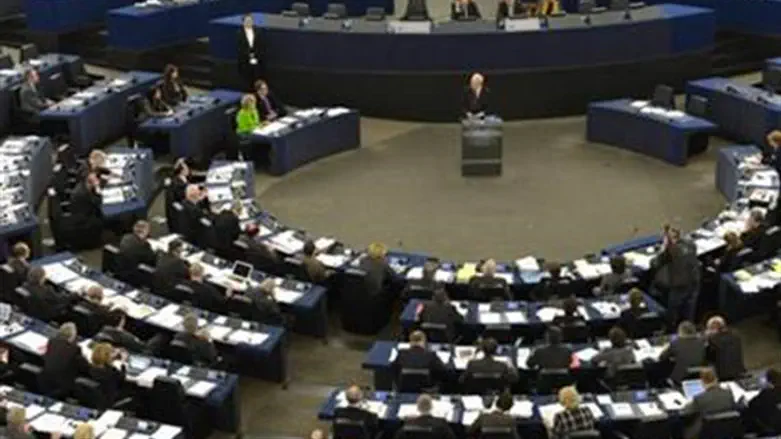
Dozens of members of the European Union’s legislative body called on the EU foreign minister to end all support for the Boycott, Sanctions and Divestment movement and other anti-Zionist organizations, and to use the 28-member state body’s influence to marginalize efforts by the BDS movement and like-minded groups.
On Tuesday, a group of 60 Members of the European Parliament from across the continent urged the EU Foreign Affairs Chief, Federica Mogherini to combat efforts to delegitimize Zionism or the State of Israel, “including incitement to hatred and violence and discriminatory practice of calls for boycotts, divestments and sanctions”.
The initiative, spearheaded by representatives of four major political groups in the European Parliament, MEP Cristian Dan Preda, MEP Ioan Mircea Pascu (S&D, Romania) and a Vice-President of the European Parliament, MEP Petras Austrevicius (ALDE, Lithuania), MEP Arne Gericke (ECR, Germany), aims to ensure “that no public funds go to organizations calling for a boycott of the State of Israel, and to instruct agencies not to engage with companies, organizations or other entities involved with the BDS movement”.
Preda highlighted his party’s opposition to calls demanding the cancellation of bilateral agreements with Israel.
“It’s in the interest of this House, and of our citizens, to see an upgrade in the partnership agreement with Israel. We should not allow the current stalemate in the peace process to dictate the terms of our relationship with Israel.”
Swedish MEP Lars Adaktusson argued that “the Union, and the Parliament, is in danger of being deemed irrelevant as a peace broker if it fails to address the incitement on its own soil against Israel.”
Europe Israel Public Affairs Founder Rabbi Menachem Margolin welcomed the initiative of the 60 MEPs: “Israel sometimes feels misunderstood by Europe, and this leads to a further strain on the relations. The European Parliament takes pride in its diversity, and we are glad to see such a wide support for investment, rather than divestment from something that has been for more than three decades a mutually advantageous bilateral relation”.